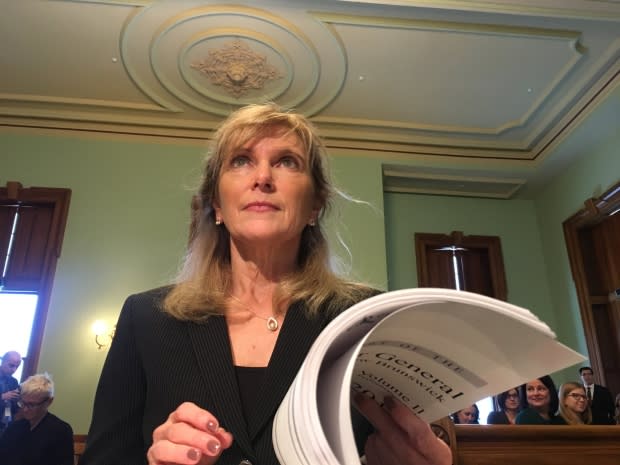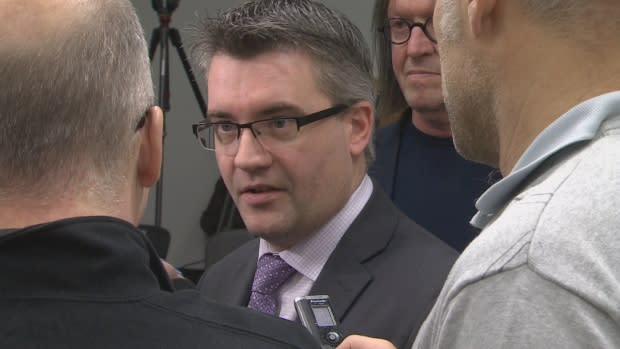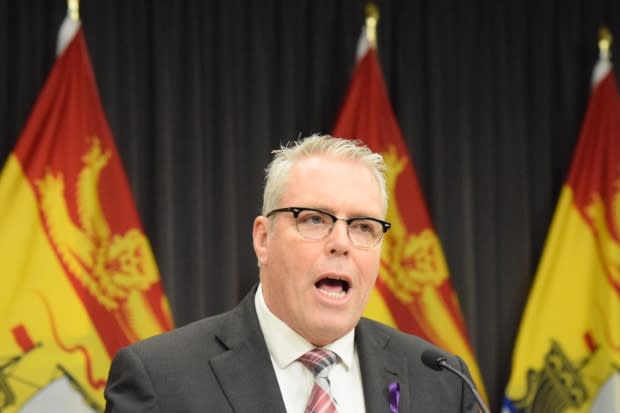Frequent school reforms hurt student performance, auditor general finds
New Brunswick's schools are failing to hit performance targets because of frequent reforms to the education system and a lack of accountability, according to a new report by Auditor General Kim MacPherson.
That includes three changes to the French immersion program in a decade and five different education strategies over the last 15 years, MacPherson told MLAs during a joint session of two legislative committees.
"Frequent changes in education strategy create instability and shift focus away from educating students," she said.
"A student starting school in September 2004 would have experienced five education strategies, each with different priorities, by the time they graduated," she wrote in her audit.

She also said the Department of Education does not hold school districts responsible for poor student performance, something that is required by the Education Act.
Many district education plans are incomplete or missing, she said, and some teachers have gone 20 years without performance reviews.
The result, she said, is that targets for reading, math and science have never been met in 15 years.
MacPherson also slammed the decision by then-premier Brian Gallant's Liberal government to return to a Grade 1 entry point for French immersion because it gave school districts only one year to implement the change.
A previous Liberal government eliminated the early entry to French immersion in 2008. The PC government that took power in 2010 had promised to restore it, but opted not to follow through, citing the potential disruption of another major overhaul.
Gallant implemented the change in September 2017, only a year after announcing it. The auditor general said it was "rushed" and created a "major challenge" because there were not enough immersion teachers to meet the new demand.
MacPherson called on the new Progressive Conservative government to avoid more disruption by sticking with the education plan introduced by the Liberals in 2016, saying stakeholders were consulted and the targets are reasonable.
The PC government signalled in its throne speech last November that they would "work within the context" of the existing education plan and would stop "throwing out programs only because another party introduced them."
But they've also said they want to improve immersion results.

Given the possible disruption, MacPherson said, any new reform of French immersion should have a realistic implementation schedule and should consider staffing and training requirements as well as the risk of creating more disruption.
Education Minister Dominic Cardy wasn't in the province Wednesday to comment on the report.
Finance Minister Ernie Steeves said the government wants to graduate more bilingual students but said another major reform won't necessarily take place.
"I don't know how you can say that's automatically going to happen," he said. "If it does happen, we'll have to address that at the time."

Figures in the report show that of 1,624 students who began French immersion in 2004, only 10 per cent finished Grade 12 with an "advanced" or better level of French.
People's Alliance Leader Kris Austin seized on that figure to suggest the program be eliminated.
"French immersion in New Brunswick is a dismal failure," he said. "If you were failing 90 per cent in anything else, you'd find ways to either get rid of it or change it."
Austin said his party supports "some level of second-language proficiency" for all students, but didn't have a clear proposal for how he'd teach it.
"It's not for me as a politician to tell educators how to teach their kids," he said.

Steeves said the program needs to be fixed but he rejected Austin's idea.
"New Brunswick is a bilingual province and we will have a French immersion system."
MacPherson's report also said that students who stick with French immersion for their entire school career fare better.
Seventy-five per cent of the 2004 cohort transferred out of the program before graduating. Of those who followed it all the way through Grade 12, 40 per cent had advanced or higher levels of French, she said.
Green Party MLA Megan Mitton said the results don't justify Austin's position.
Teachers pleased
"Just because something's broken doesn't mean we need to throw it out," she said. "We need to invest in it. It's really valuable for New Brunswick."
George Daley, the New Brunswick Teachers' Association president, said it appears most students switch out of immersion in Grade 10, and their ability in the language at that point needs to be measured before any changes are made.
Daley said he welcomed MacPherson's call for more stability in the system.
"I think it's very positive that the auditor general has raised it."

